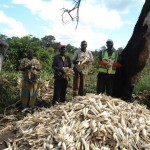
Thirty years ago, families in Mozambique’s village of Nhantumbi could rely on regular rainfall to cultivate their crops and feed their families. Since then, unpredictable rains, deforestation and unsustainable agricultural practices have caused a steep decline in productivity in Nhantumbi and neighboring villages.
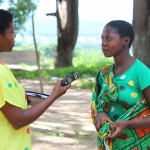
Mozambique has the 10th highest incidence of early marriage in the world. It is estimated that 48 percent of girls are married by the age of 18, and some 14 percent by the age of 15—below the legal age of consent established by Mozambique’s family law. Early marriage violates the rights of children, perpetuates gender inequity, and is often accompanied by early pregnancy, which carries increased health risks for both mother and child.
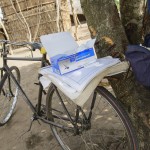
Dust devils are swirling through Catsanha, a village of about a dozen huts scattered across a dusty plane in western Mozambique's Moatize district in Tete province. Big industries have recently moved in for the coal reserves, so abundant in this part of the country.
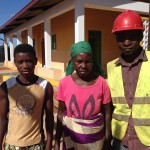
People leaving in the village of Arijuana in Mozambique's Zambezia province must travel 25 to 50 kilometers on foot to access basic health care. The distance is often too far for the sick to undertake. A new health center in the final stages of construction, however, stands as a testament to perseverance and ingenuity amid a harsh and isolated environment.
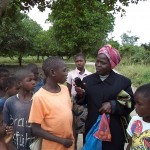
January 2016—Albertina Luís is a community radio journalist in northern Mozambique where, recently, the number of cases of sexual and gender-based violence against women and girls has risen. Despite this trend, survivor reporting rates remain very low due to fear of retaliation and ignorance of survivor rights.








Comment
Make a general inquiry or suggest an improvement.